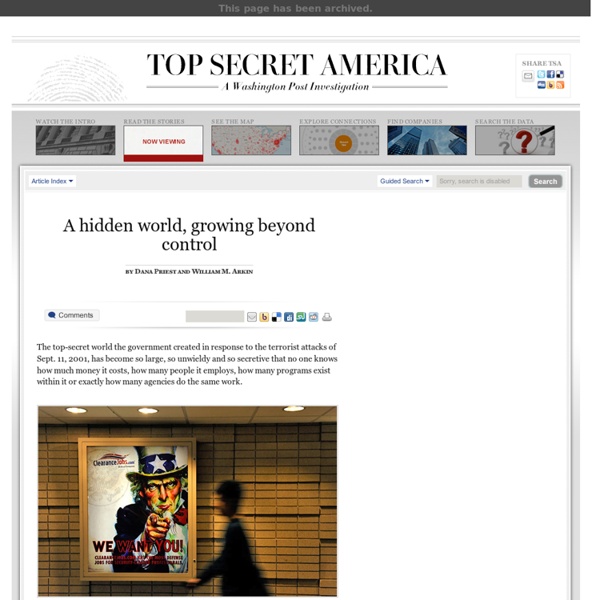A hidden world, growing beyond control

Best Hospitals 2010-2011
U.S. News surveyed nearly 10,000 specialists and sifted through data for approximately 5,000 hospitals to rank the best in 16 adult specialties, from cancer to urology. Death rates, patient safety, and hospital reputation were a few of the factors considered. Cancer University of Texas MD Anderson Cancer Center Cardiology & Heart Surgery New York-Presbyterian University Hospital of Columbia and Cornell Diabetes & Endocrinology Massachusetts General Hospital Ear, Nose & Throat Gastroenterology & GI Surgery Mayo Clinic Geriatrics UCLA Medical Center Gynecology Brigham and Women's Hospital Nephrology Neurology & Neurosurgery Johns Hopkins Hospital Ophthalmology Bascom Palmer Eye Institute at the University of Miami Orthopedics Hospital for Special Surgery Psychiatry McLean Hospital Pulmonology National Jewish Health, Denver-University of Colorado Hospital Rehabilitation Rehabilitation Institute of Chicago Rheumatology Cleveland Clinic Urology
Nutrient Data Labratory
Related:
Related:



